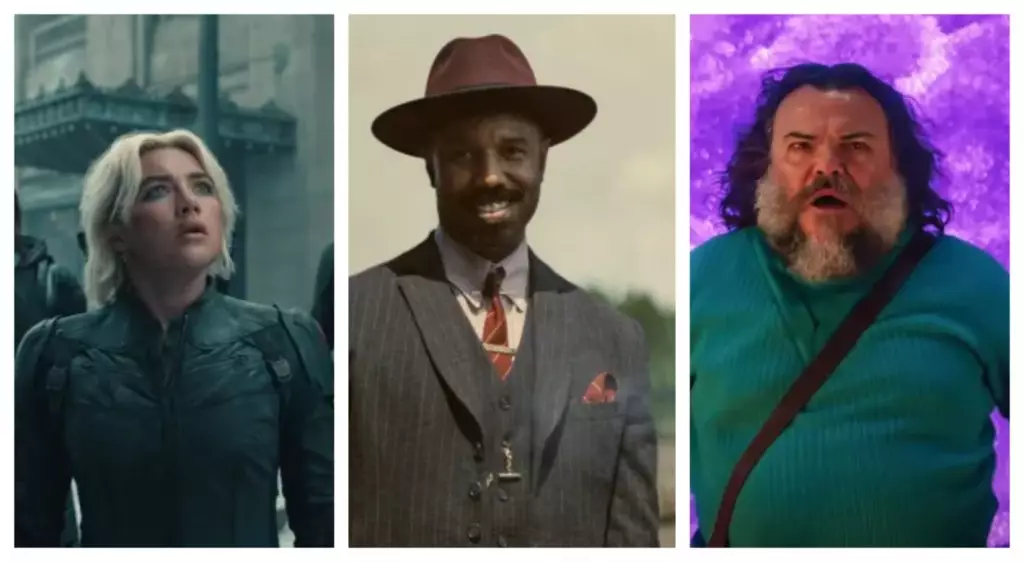Marvel’s latest installment, *Thunderbolts*, has made headlines with a staggering global box office of $272.2 million in just two weekends, signaling to the industry that the superhero genre continues to thrive. However, behind this seemingly triumphant figure lies a troubling story of volatility and shifting audience sentiments. The 52% drop in international box office earnings since its opening weekend raises eyebrows about audience retention and long-term interest. Even when adjusting for markets like China, the decline remains a distressing 50%.
The film clearly shows that despite initial excitement, viewers may be experiencing franchise fatigue, questioning the continued viability of well-trodden storylines featuring antiheroes. Given that the film was topped by other competitors in various regions, including a stiff challenge from *Minecraft: The Movie*, it may indicate a paradigm shift where new narratives are eclipsing the tried-and-true.
Shifting Back to the Basics: What Works?
*Minecraft: The Movie*, featuring star power like Jack Black and Jason Momoa, has surprisingly outperformed expectations, grossing over $909.6 million globally. This is not simply a flash in the pan but rather a reflection of changing consumer demands. The family-oriented film has demonstrated that audiences are eager for refreshing, original content rather than predictable sequel after sequel.
With *Thunderbolts* having received mixed critical and audience reviews, it’s crucial to analyze what resonated with audiences about *Minecraft* while *Thunderbolts* struggled. In a world craving narratives that break traditional molds, *Thunderbolts*, despite being a part of a beloved franchise, may have failed to deliver anything substantial or groundbreaking. Audiences today are looking for authenticity and innovation, and sometimes even nostalgia can’t save a lackluster plot.
Franchise Fatigue: A Real Concern
The broader implications for the Marvel Cinematic Universe (MCU) are alarming. *Thunderbolts* may be the most recent casualty of franchise fatigue. The rapid descent of earnings suggests that consumers are forming an aversion to another superhero spectacle that does not bring anything new to the table. For MCU and similar studios, there must be an introspective reevaluation. Audiences are not simply buying tickets—they are buying experiences, narratives, and unforgettable characters.
Marvel’s strength has always been its storytelling. As evidenced by a strong showing from *Sinners*, starring Michael B. Jordan, the industry is witnessing a vital shift: audiences are hungry for deeper, more diverse storytelling that reflects contemporary cultural narratives. While superhero films can still draw large crowds, the danger lies in neglecting character depth and emotional substance.
Europe: A Flicker of Hope?
Despite a challenging weekend, *Thunderbolts* managed to perform reasonably well in Europe. Reports indicate that it is still topping the charts in various markets across Eastern and Western Europe. However, this scenario is laden with caution. The film’s ability to stay relevant in these regions reflects not just a preferential bias towards superhero films but also a growing contempt for anything overly formulaic.
The irony is undeniable—*Thunderbolts* may hold the top studio title in European markets, yet it elicits questions about how long this fascination will last if the plot remains unoriginal. Just as the film received accolades for its impressive visuals, it is crucial for filmmakers to remember that a great cinematic experience comprises more than striking visuals.
Potential for a Comeback: What’s Next?
As the box office landscape dramatically shifts, it becomes vital for studios—including Marvel—to heed the warning signals. Upcoming transformative releases like *Karate Kid: Legends* underline an emerging market for nostalgia-driven narratives that are not merely remakes but revivals with a fresh perspective. An unprecedented opening of $5.7 million in several Latin American countries illustrates audience enthusiasm for stories that evoke their past, provided they offer something genuinely new.
Therein lies an opportunity for studios to capitalize on nostalgia while reimagining beloved narratives. The $272.2 million earned by *Thunderbolts* serves as a wake-up call that future stories must evolve from traditional superhero arcs to more innovative and dynamic storytelling.
The film business is merciless and audience tastes continue to morph with every passing season. Marvel’s iconic status will hinge on its capacity to adapt and pivot in the midst of change. Without meeting shifting consumer expectations and innovating in its storytelling mechanisms, it risks sinking into the annals of cinema history rather than soaring into a new era of artistic achievement.

